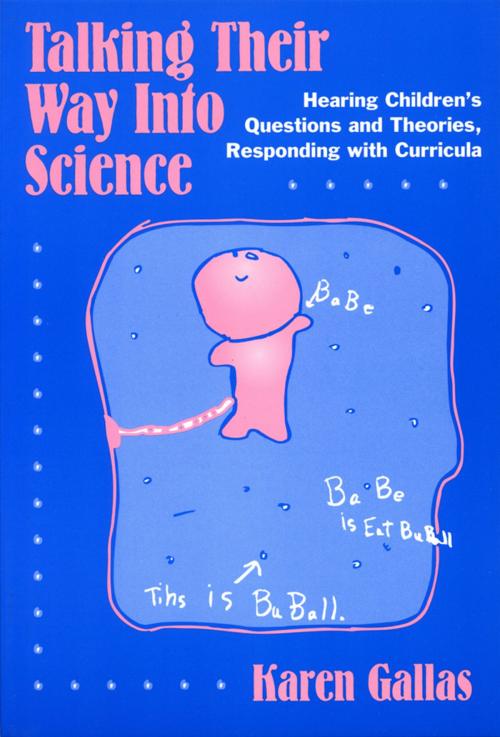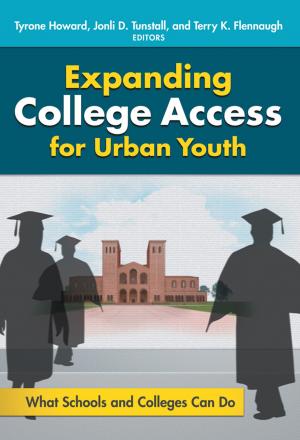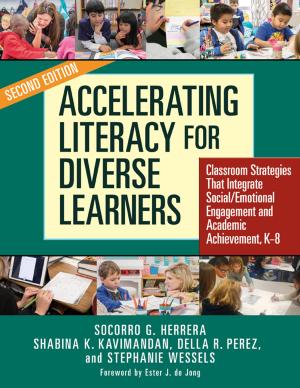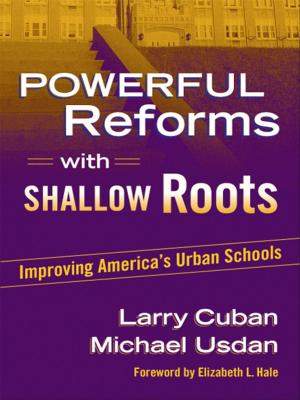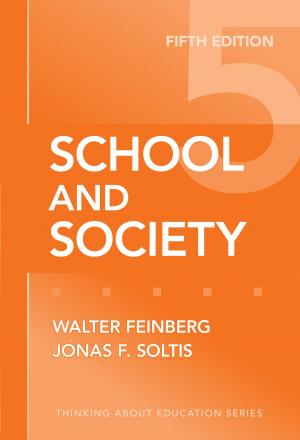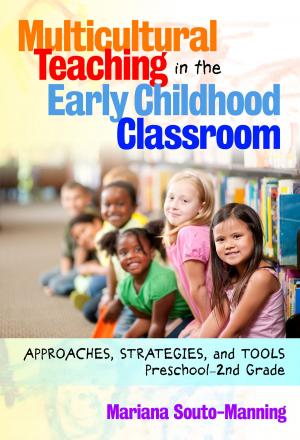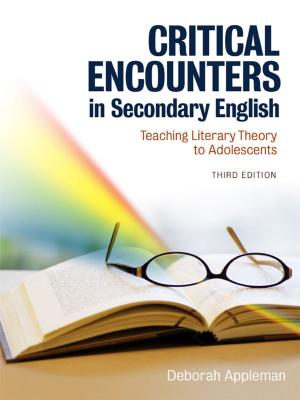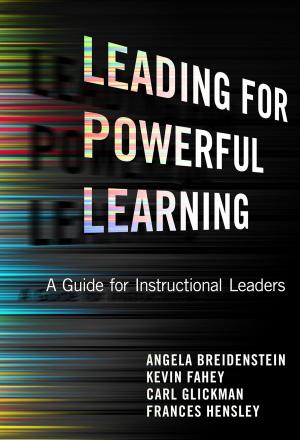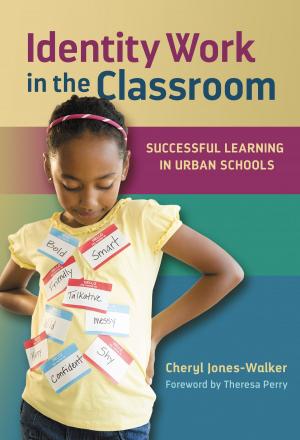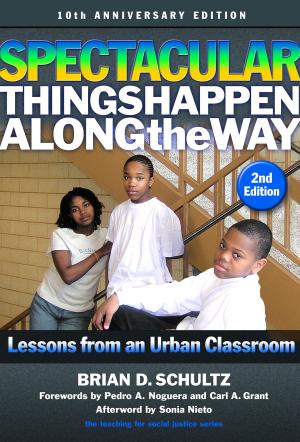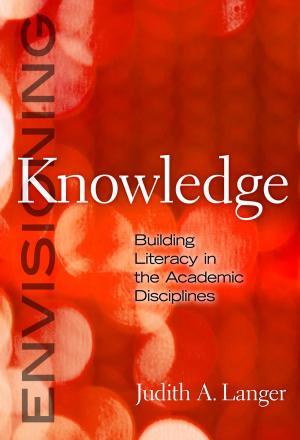Talking Their Way Into Science
Hearing Children's Questions and Theories, Responding with Curriculum
Nonfiction, Reference & Language, Education & Teaching, Elementary, Teaching, Teaching Methods| Author: | Karen Gallas | ISBN: | 9780807770115 |
| Publisher: | Teachers College Press | Publication: | December 15, 2009 |
| Imprint: | Language: | English |
| Author: | Karen Gallas |
| ISBN: | 9780807770115 |
| Publisher: | Teachers College Press |
| Publication: | December 15, 2009 |
| Imprint: | |
| Language: | English |
Karen Gallas provides us with a window into children’s thinking about the world, enabling us to see how students build complex theories, identify important questions, and begin to enter the world of science, all within the naturalistic setting of the classroom.
As the title suggests, this book treats classroom science as a particular type of discourse, with its own set of language and thinking practices. Gallas describes the content, structure, and practice of her child-centered approach, explains how the teacher’s role in Science Talks develops and changes over time, and discusses how the use of Science Talks could transform science instruction as a whole. The full transcripts of two such talks included in the appendix, in addition to many smaller quoted interchanges throughout the text, will fascinate readers.
“Ever since I was given this book to review, I have been referring graduate students and teacher candidates to its content.”
—Curriculum Inquiry
“Provides many specific recommendations that can significantly assist teachers in improving classroom discourse.”
—Communication Education
Karen Gallas provides us with a window into children’s thinking about the world, enabling us to see how students build complex theories, identify important questions, and begin to enter the world of science, all within the naturalistic setting of the classroom.
As the title suggests, this book treats classroom science as a particular type of discourse, with its own set of language and thinking practices. Gallas describes the content, structure, and practice of her child-centered approach, explains how the teacher’s role in Science Talks develops and changes over time, and discusses how the use of Science Talks could transform science instruction as a whole. The full transcripts of two such talks included in the appendix, in addition to many smaller quoted interchanges throughout the text, will fascinate readers.
“Ever since I was given this book to review, I have been referring graduate students and teacher candidates to its content.”
—Curriculum Inquiry
“Provides many specific recommendations that can significantly assist teachers in improving classroom discourse.”
—Communication Education
